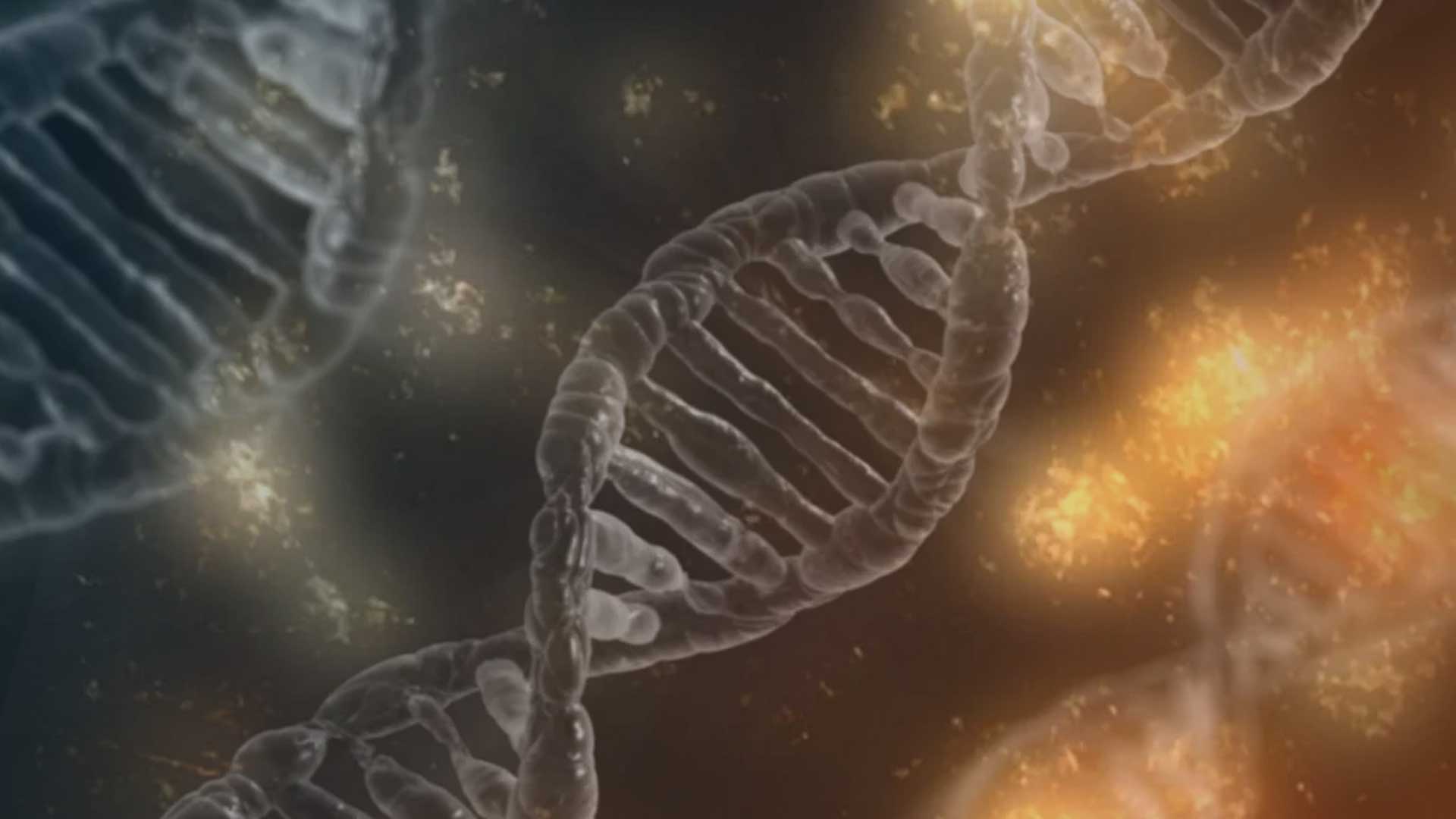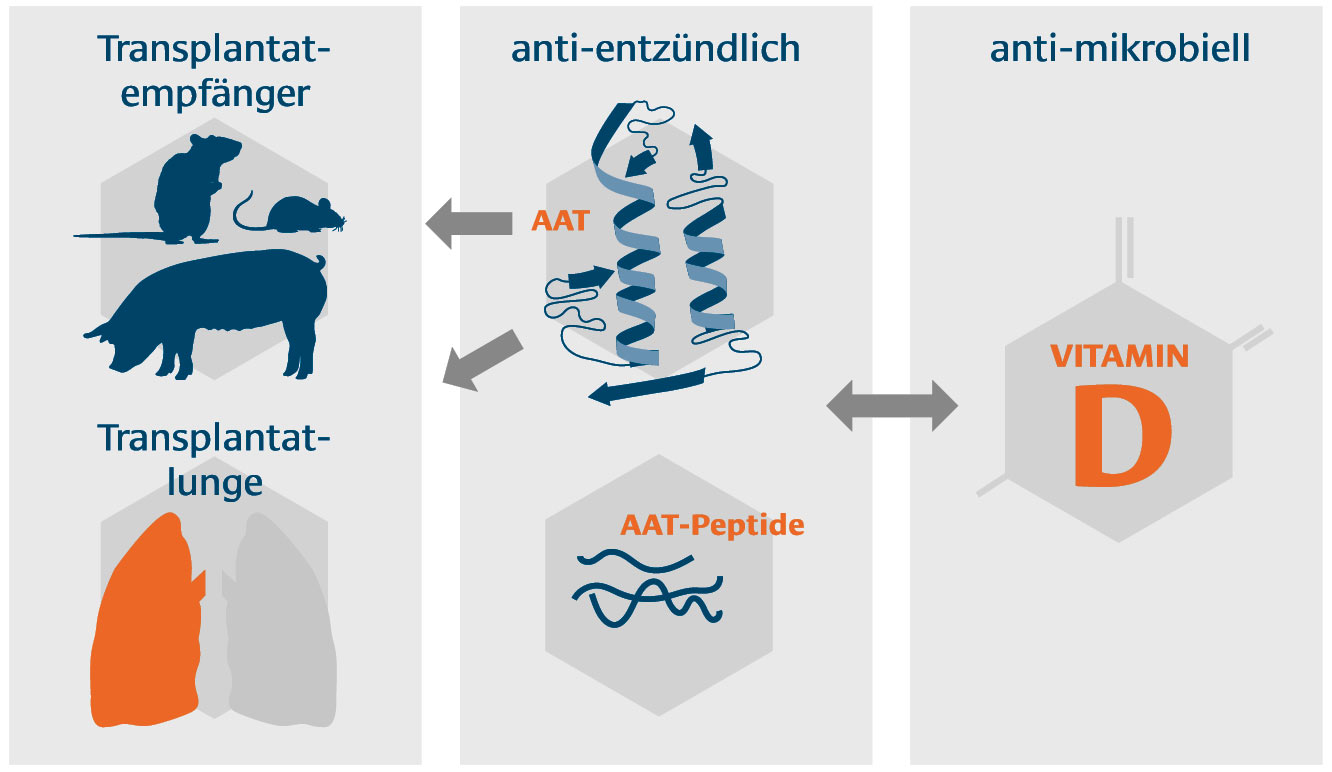Alpha1-antitrypsin: reaserch updates
AutorIn
Prof. Dr. Sabina Janciauskiene
Human α1-antitrypsin has at least two distinguishing functions: inhibit proteases and regulate immune cell responces. Therefore, the therapy with AAT can be beneficial for various acute inflammatory conditions, including COVID-19. The beneficial effects of AAT therapy have been suggested in lung transplantation as well. Scientists reported that the therapy with AAT improves lung function in transplanted animals. For example, in a rat model post-transplant injury was much lower when donor lung was treated with AAT and animal who received lung was also treated with AAT. In a pig model, the treatment lung receiving pig with AAT before transplantation significantly improved survival. Moreover, lungs perfused and stored in solution (Perfadex) supplemented with AAT showed much less damage after transplantation as compared to the lungs stored in Perfadex without AAT [22]. In support, in a mice model we also show that AAT therapy inhibits apoptosis and affects lymphocyte cell subsets favoring survival of lung recipient.
We know that lung transplantation in AAT deficient patients does not resolve the inherited deficiency of AAT that originally led to the development of this condition. Therefore, following transplantation, patients remain at risk of redeveloping emphysema and related clinical consequences. We think that AAT therapy after transplantation may be beneficial. The AAT therapy might be even more important for those lung transplanted patients who were treated with AAT prior to transplantation. We previously reported that AAT deficient patients, who received AAT therapy prior to but not after lung transplantation, show worse survival rates than AAT deficiency patients without prior augmentation or COPD patients having normal genetic variant of AAT. Therapy with AAT given after lung tranplantation can be beneficial as anti-inflammatory and immunomodulatory. We continue studies on the effects and mechanisms of AAT not only during acute but also during chronic lung rejection.
The functions of AAT are mediated by different structural domains on the AAT protein. Several fragments of AAT have impressive anti-inflammatory effects. We hope that some peptides of AAT could be used as a basis for developing novel anti-inflammatory drugs and research tools for better understanding AAT functions.
Vitamin D upregulates anti-inflammatory and antimicrobial pathways that promote respiratory health. Vitamin D synthesis is initiated following skin exposure, however nutritional supplementation can be required to address deficiency, for example during the winter months. Researches reported that vitamin D increases AAT expression in human lymphocytes and this response is impaired in individuals ZZ AAT deficiency. Vitamin D-induced AAT contributes to local immunomodulation and airway health effects previously attributed to vitamin D. Further research is going on to understand the relationship between vitamin D, lung AAT levels and lymphocytes.
References
- Nakagiri T, Wrenger S, Sivaraman K, Ius F, Goecke T, Zardo P, Grau V, Welte T, Haverich A, Knöfel AK, Janciauskiene S. α1-Antitrypsin attenuates acute rejection of orthotopic murine lung allografts. Respir Res. 2021
- Conrad A, Janciauskiene S, Kohnlein T, Fuge J, Ivanyi P, Tudorache I, Gottlieb J, Welte T, Fuehner T. Impact of alpha 1-antitrypsin deficiency and prior augmentation therapy on patients’ survival after lung transplantation. Eur Respir J. 2017.
- Lior Y, Shtriker E, Kahremany S, Lewis EC, Gruzman A. Development of anti-inflammatory peptidomimetics based on the structure of human alpha1-antitrypsin. Eur J Med Chem. 2021
- Chen YH, Cheadle CE, Rice LV, et al. The Induction of Alpha-1 Antitrypsin by Vitamin D in Human T Cells Is TGF-β Dependent: A Proposed Anti-inflammatory Role in Airway Disease. Front Nutr. 2021
Eine deutsche Version dieses Artikels finden Sie in der Ausgabe 2-2021 unseres Alpha1-Journals.
Ebenfalls hilfreich: Der kostenfreie Online-Übersetzer deepl.com.


